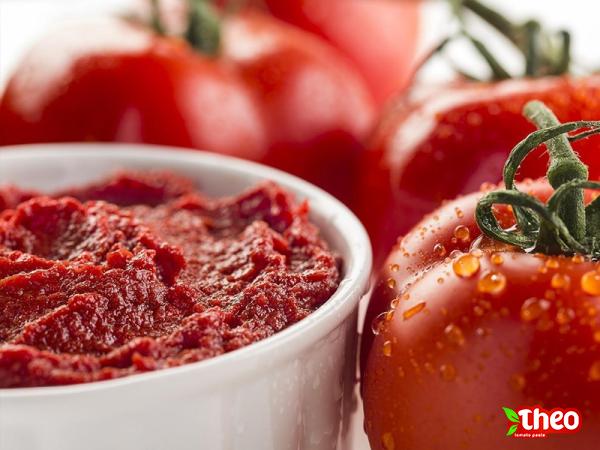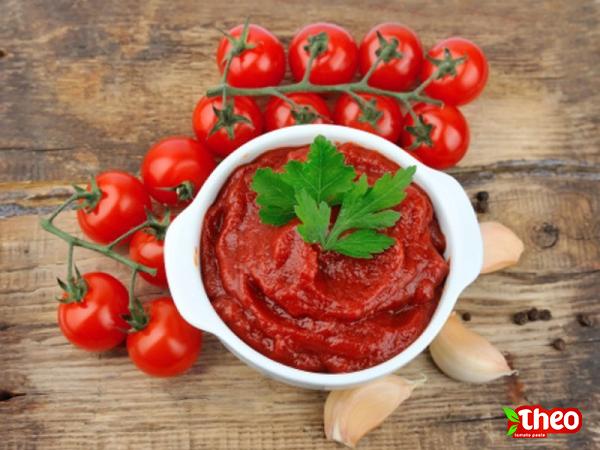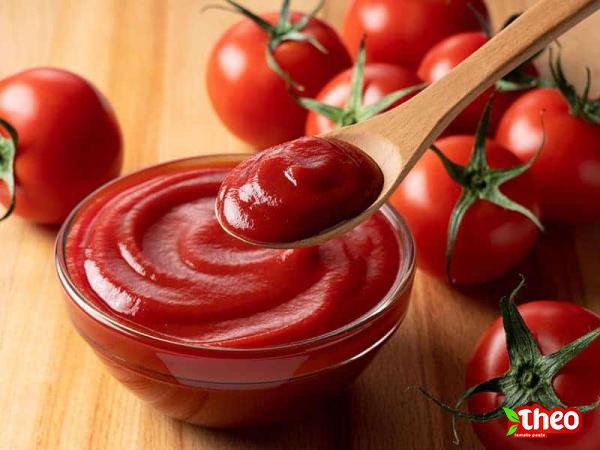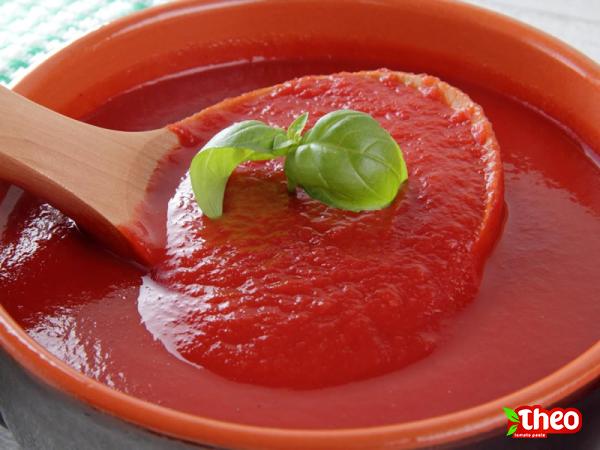A Comprehensive Guide to Canned Tomatoes Types Canned tomatoes are a staple in many kitchens, offering convenience, versatility, and a longer shelf life compared to their fresh counterparts. With numerous options available in the market, it can be overwhelming to choose the right type of canned tomatoes for your culinary needs. This guide provides a comprehensive overview of the different types of canned tomatoes, including whole peeled tomatoes, crushed tomatoes, diced tomatoes, tomato paste, and tomato sauce, highlighting their characteristics, uses, and benefits. Whole Peeled Tomatoes: Whole peeled tomatoes are the most common type of canned tomatoes and are often considered the closest alternative to fresh tomatoes. These tomatoes are picked and packed when fully ripened, usually in a tomato puree or juice. They retain their shape and are prized for their natural sweetness, vibrant red color, and firm texture. Whole peeled tomatoes are versatile and can be used in various dishes such as sauces, stews, soups, and pasta dishes. They are a preferred choice for recipes where the tomatoes need to remain intact. Crushed Tomatoes: Crushed tomatoes are made by crushing whole peeled tomatoes, resulting in smaller and more irregular pieces. They are often packed in tomato juice or puree, which gives them a slightly thinner consistency compared to diced tomatoes. Crushed tomatoes have a rich, thick texture and are well-suited for sauces, pasta dishes, and as a base for pizza toppings. They provide a robust tomato flavor and are a popular choice for recipes that require a smoother consistency.
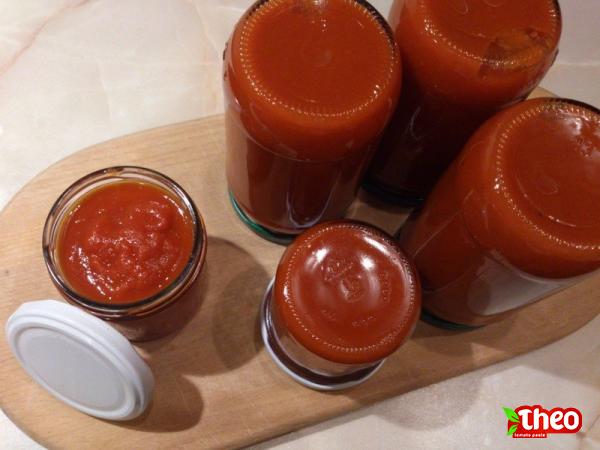
tomato paste
 Diced Tomatoes: Diced tomatoes are made from ripe tomatoes that are chopped into small, uniform pieces and packed in tomato juice or puree. They offer a balance between whole peeled tomatoes and crushed tomatoes, providing a chunkier texture while still maintaining flavor and juiciness. Diced tomatoes are great for recipes that call for pieces of tomato to be visible, such as salsas, chili, and chunky sauces. They add vibrant color, texture, and a burst of freshness to a variety of dishes. Tomato Paste: Tomato paste is a concentrated form of tomatoes made by cooking down pureed tomatoes until most of the moisture is removed. It has a dense consistency and a deep red color. Tomato paste is known for its intense, concentrated flavor and is often used to add a rich tomato taste to recipes. It is commonly used as a base for sauces, soups, and stews, as well as an ingredient in marinades and dressings. Tomato paste is highly versatile and can be reconstituted with water to make tomato sauce or thinned out with broth or wine for more liquid-based dishes. Tomato Sauce: Tomato sauce is a smooth, liquid-based product made from cooked pureed tomatoes. It is typically seasoned with herbs, spices, and other flavorings, such as garlic or onions. Tomato sauce is often used as a base for pasta sauces, pizza sauces, and various other tomato-based dishes. It provides a consistent texture and a well-balanced flavor profile. Tomato sauce is available in different thicknesses, from thin and runny to thick and hearty, catering to various cooking preferences. Tomato Puree: Tomato puree is a smooth, thick product made from cooked and strained tomatoes. It has a velvety texture and a rich, concentrated flavor. Tomato puree is often used as a base for sauces, soups, and stews, providing a vibrant red color and a robust tomato taste. It can also be used as a thickening agent and a flavor enhancer in various recipes. Tomato puree is a versatile ingredient that offers convenience and consistency in cooking. In conclusion, canned tomatoes come in various types, each offering unique characteristics, flavors, and textures. Whole peeled tomatoes are prized for their firm texture and natural sweetness, crushed tomatoes for their robust flavor and smooth consistency, diced tomatoes for their vibrant color and chunky texture, tomato paste for its intense concentration and versatility, tomato sauce for its well-balanced flavor and liquid base, and tomato puree for its velvety texture and rich taste. Understanding the differences between these types of canned tomatoes will help you make informed decisions when choosing the right product for your culinary creations.Canned Tomatoes: A Guide to Types and Business Opportunities
Diced Tomatoes: Diced tomatoes are made from ripe tomatoes that are chopped into small, uniform pieces and packed in tomato juice or puree. They offer a balance between whole peeled tomatoes and crushed tomatoes, providing a chunkier texture while still maintaining flavor and juiciness. Diced tomatoes are great for recipes that call for pieces of tomato to be visible, such as salsas, chili, and chunky sauces. They add vibrant color, texture, and a burst of freshness to a variety of dishes. Tomato Paste: Tomato paste is a concentrated form of tomatoes made by cooking down pureed tomatoes until most of the moisture is removed. It has a dense consistency and a deep red color. Tomato paste is known for its intense, concentrated flavor and is often used to add a rich tomato taste to recipes. It is commonly used as a base for sauces, soups, and stews, as well as an ingredient in marinades and dressings. Tomato paste is highly versatile and can be reconstituted with water to make tomato sauce or thinned out with broth or wine for more liquid-based dishes. Tomato Sauce: Tomato sauce is a smooth, liquid-based product made from cooked pureed tomatoes. It is typically seasoned with herbs, spices, and other flavorings, such as garlic or onions. Tomato sauce is often used as a base for pasta sauces, pizza sauces, and various other tomato-based dishes. It provides a consistent texture and a well-balanced flavor profile. Tomato sauce is available in different thicknesses, from thin and runny to thick and hearty, catering to various cooking preferences. Tomato Puree: Tomato puree is a smooth, thick product made from cooked and strained tomatoes. It has a velvety texture and a rich, concentrated flavor. Tomato puree is often used as a base for sauces, soups, and stews, providing a vibrant red color and a robust tomato taste. It can also be used as a thickening agent and a flavor enhancer in various recipes. Tomato puree is a versatile ingredient that offers convenience and consistency in cooking. In conclusion, canned tomatoes come in various types, each offering unique characteristics, flavors, and textures. Whole peeled tomatoes are prized for their firm texture and natural sweetness, crushed tomatoes for their robust flavor and smooth consistency, diced tomatoes for their vibrant color and chunky texture, tomato paste for its intense concentration and versatility, tomato sauce for its well-balanced flavor and liquid base, and tomato puree for its velvety texture and rich taste. Understanding the differences between these types of canned tomatoes will help you make informed decisions when choosing the right product for your culinary creations.Canned Tomatoes: A Guide to Types and Business Opportunities
Specifications of tomato paste
 1. Introduction: Canned tomatoes are a staple in many kitchens due to their convenience, versatility, and extended shelf life. In this guide, we explore the various types of canned tomatoes and delve into the business opportunities that arise from this popular product. 2. Market Overview: The canned tomatoes market is thriving, with a growing demand for convenient and shelf-stable tomato products. The global market is expected to reach a value of USD XX billion by 2025, driven by factors such as changing consumer lifestyles, increasing urbanization, and the rise of ready-to-eat meals. This presents a promising opportunity for entrepreneurs and existing businesses in the food industry. 3. Whole Peeled Tomatoes: Whole peeled tomatoes are a popular choice for their close resemblance to fresh tomatoes. These tomatoes are packed in either tomato puree or juice, retaining their shape, vibrant color, and natural sweetness. From a business perspective, there is a market for high-quality whole peeled tomatoes that cater to the demand for premium ingredients in gourmet cooking and food service establishments. 4. Crushed Tomatoes: Crushed tomatoes are made by crushing whole peeled tomatoes, resulting in smaller and irregular pieces. They offer a thicker consistency compared to diced tomatoes, making them an excellent choice for sauces and pizza toppings. Entrepreneurs can capitalize on the versatility of crushed tomatoes by targeting fast-food chains, pizzerias, and manufacturers of pasta sauces and salsas. 5. Diced Tomatoes: Diced tomatoes are chopped into small, uniform pieces and packed in tomato juice or puree. Their chunky texture and vibrant color make them ideal for salsas, chili, and chunky sauces. Entrepreneurs can explore the demand for diced tomatoes in the foodservice industry, including restaurants, catering businesses, and salad manufacturers.
1. Introduction: Canned tomatoes are a staple in many kitchens due to their convenience, versatility, and extended shelf life. In this guide, we explore the various types of canned tomatoes and delve into the business opportunities that arise from this popular product. 2. Market Overview: The canned tomatoes market is thriving, with a growing demand for convenient and shelf-stable tomato products. The global market is expected to reach a value of USD XX billion by 2025, driven by factors such as changing consumer lifestyles, increasing urbanization, and the rise of ready-to-eat meals. This presents a promising opportunity for entrepreneurs and existing businesses in the food industry. 3. Whole Peeled Tomatoes: Whole peeled tomatoes are a popular choice for their close resemblance to fresh tomatoes. These tomatoes are packed in either tomato puree or juice, retaining their shape, vibrant color, and natural sweetness. From a business perspective, there is a market for high-quality whole peeled tomatoes that cater to the demand for premium ingredients in gourmet cooking and food service establishments. 4. Crushed Tomatoes: Crushed tomatoes are made by crushing whole peeled tomatoes, resulting in smaller and irregular pieces. They offer a thicker consistency compared to diced tomatoes, making them an excellent choice for sauces and pizza toppings. Entrepreneurs can capitalize on the versatility of crushed tomatoes by targeting fast-food chains, pizzerias, and manufacturers of pasta sauces and salsas. 5. Diced Tomatoes: Diced tomatoes are chopped into small, uniform pieces and packed in tomato juice or puree. Their chunky texture and vibrant color make them ideal for salsas, chili, and chunky sauces. Entrepreneurs can explore the demand for diced tomatoes in the foodservice industry, including restaurants, catering businesses, and salad manufacturers.
buy tomato paste
 6. Tomato Paste: Tomato paste is a highly concentrated form of tomatoes obtained by cooking down pureed tomatoes. It offers an intense, concentrated flavor and deep red color. Tomato paste is a valuable ingredient for various cuisines and can be supplied to sauce manufacturers, soup companies, and meal kit services that rely on a strong tomato base. 7. Tomato Sauce: Tomato sauce is a smooth, liquid-based product made from cooked pureed tomatoes seasoned with herbs and spices. It serves as a base for pasta sauces, pizza sauces, and other tomato-based dishes. Entrepreneurs can target retail consumers by offering different varieties of tomato sauce, such as organic, low-sodium, or spicy options. 8. Tomato Puree: Tomato puree is a thick, smooth product made from cooked and strained tomatoes. It provides a velvety texture and a rich, concentrated flavor, making it suitable for sauces, soups, and stews. Businesses can explore opportunities in the foodservice industry by supplying tomato puree to restaurants, hotels, and catering businesses. 9. Value-Added Products: Entrepreneurs can capitalize on the growing demand for value-added tomato products. For example, sun-dried tomatoes, tomato-based salsas, tomato powders, and flavored tomato sauces, are gaining popularity due to their unique flavors and versatility in culinary applications. These products offer an avenue to target niche markets and specialty food stores. 10. Private Label Opportunities: Private label products are becoming increasingly popular as retailers seek to differentiate themselves and offer high-quality alternatives to national brands. Entrepreneurs can benefit from this trend by establishing their own private label canned tomato products, targeting retailers who are looking for premium quality and customized offerings. 11. Sustainability and Organic Options: With the increasing emphasis on sustainability and organic products, there is a demand for canned tomatoes that are sourced from sustainable farms and produced using organic methods. Entrepreneurs can tap into this market by offering sustainable packaging options, promoting eco-friendly practices, and partnering with organic farms. 12. Export Opportunities: The global demand for canned tomatoes provides export opportunities for businesses. Countries with a strong tomato industry can leverage their production capabilities to export canned tomato products to regions where the demand exceeds local supply. This offers a chance to expand market reach and capitalize on international trade. In conclusion, the canned tomatoes market offers a wide range of business opportunities across different segments. Entrepreneurs and businesses can cater to the varying needs of consumers by offering high-quality whole peeled tomatoes, crushed tomatoes, diced tomatoes, tomato paste, tomato sauce, tomato puree, value-added products, private label options, sustainable and organic options, and by exploring export opportunities. Understanding the market dynamics, consumer preferences, and culinary trends will play a crucial role in successfully navigating the canned tomatoes business landscape.
6. Tomato Paste: Tomato paste is a highly concentrated form of tomatoes obtained by cooking down pureed tomatoes. It offers an intense, concentrated flavor and deep red color. Tomato paste is a valuable ingredient for various cuisines and can be supplied to sauce manufacturers, soup companies, and meal kit services that rely on a strong tomato base. 7. Tomato Sauce: Tomato sauce is a smooth, liquid-based product made from cooked pureed tomatoes seasoned with herbs and spices. It serves as a base for pasta sauces, pizza sauces, and other tomato-based dishes. Entrepreneurs can target retail consumers by offering different varieties of tomato sauce, such as organic, low-sodium, or spicy options. 8. Tomato Puree: Tomato puree is a thick, smooth product made from cooked and strained tomatoes. It provides a velvety texture and a rich, concentrated flavor, making it suitable for sauces, soups, and stews. Businesses can explore opportunities in the foodservice industry by supplying tomato puree to restaurants, hotels, and catering businesses. 9. Value-Added Products: Entrepreneurs can capitalize on the growing demand for value-added tomato products. For example, sun-dried tomatoes, tomato-based salsas, tomato powders, and flavored tomato sauces, are gaining popularity due to their unique flavors and versatility in culinary applications. These products offer an avenue to target niche markets and specialty food stores. 10. Private Label Opportunities: Private label products are becoming increasingly popular as retailers seek to differentiate themselves and offer high-quality alternatives to national brands. Entrepreneurs can benefit from this trend by establishing their own private label canned tomato products, targeting retailers who are looking for premium quality and customized offerings. 11. Sustainability and Organic Options: With the increasing emphasis on sustainability and organic products, there is a demand for canned tomatoes that are sourced from sustainable farms and produced using organic methods. Entrepreneurs can tap into this market by offering sustainable packaging options, promoting eco-friendly practices, and partnering with organic farms. 12. Export Opportunities: The global demand for canned tomatoes provides export opportunities for businesses. Countries with a strong tomato industry can leverage their production capabilities to export canned tomato products to regions where the demand exceeds local supply. This offers a chance to expand market reach and capitalize on international trade. In conclusion, the canned tomatoes market offers a wide range of business opportunities across different segments. Entrepreneurs and businesses can cater to the varying needs of consumers by offering high-quality whole peeled tomatoes, crushed tomatoes, diced tomatoes, tomato paste, tomato sauce, tomato puree, value-added products, private label options, sustainable and organic options, and by exploring export opportunities. Understanding the market dynamics, consumer preferences, and culinary trends will play a crucial role in successfully navigating the canned tomatoes business landscape.

